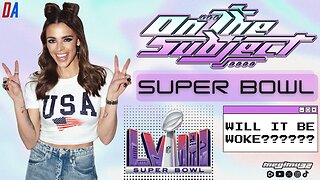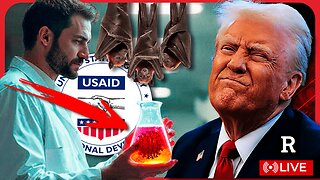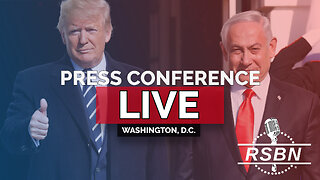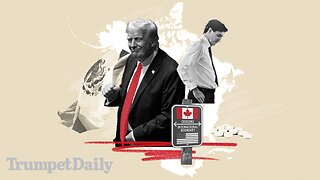Premium Only Content

#201 Modern Monetary Theory (MMT)
Modern Monetary Theory (MMT) is an economic theory that challenges conventional views on government spending, fiscal policy, and monetary policy. It is often associated with economists like Stephanie Kelton, Randall Wray, and Warren Mosler. MMT has gained attention in recent years, particularly in political and economic discussions, although it remains a topic of debate among economists and policymakers.
Key principles and concepts of Modern Monetary Theory include:
Currency as a Monopoly: MMT posits that a government with its own fiat currency (currency not backed by a physical commodity like gold) operates with a monopoly over the issuance of that currency. This means that the government can create as much currency as it needs.
Functional Finance: MMT suggests that the primary goal of fiscal policy should be full employment and price stability, rather than focusing on balancing the budget. It argues that governments should use their fiscal powers to maintain economic stability and achieve these goals.
Job Guarantee: MMT advocates for the implementation of a Job Guarantee program, where the government acts as an "employer of last resort." This program would provide employment to anyone willing and able to work at a base wage, thereby ensuring full employment.
Sectoral Balances: MMT emphasizes the importance of understanding the relationships between the government sector, the private sector, and the foreign sector. It argues that government deficits result in surpluses in other sectors, and vice versa.
Inflation Control: MMT acknowledges that excessive government spending can lead to inflation. It suggests that controlling inflation should be the primary constraint on government spending, rather than concerns about budget deficits.
Monetary Policy and Interest Rates: MMT contends that central banks' control over interest rates is not the primary tool for managing the economy. Instead, fiscal policy, particularly government spending, should be used to achieve economic stability.
Critics of MMT raise several concerns and objections:
Inflation Risk: Critics argue that MMT's focus on inflation control through taxation may not be sufficient, and excessive government spending could lead to inflationary pressures.
Government Debt: Skeptics worry that MMT's approach to government debt might encourage reckless spending and contribute to unsustainable levels of debt.
Exchange Rates: Some critics contend that MMT does not adequately address the potential impact of government policies on exchange rates and international trade.
Practical Implementation: Implementing a Job Guarantee program and managing fiscal policy according to MMT principles may face practical challenges and political resistance.
It's important to note that MMT is a heterodox economic theory, and its ideas remain a subject of ongoing debate. While it has gained prominence in some policy discussions, it has not been widely adopted as the prevailing economic framework. Policymakers, economists, and scholars continue to examine the merits and limitations of MMT in addressing economic challenges.
www.antharas.co.uk/ companies website or top book distributors!
#BusinessStrategy
#Entrepreneurship
#Leadership
#Management
#Marketing
#Finance
#Startups
#Innovation
#Sales
#SmallBusiness
#CorporateCulture
#Productivity
#SelfDevelopment
#SuccessStories
#PersonalBranding
#Networking
#Negotiation
#BusinessEthics
#TimeManagement
#GrowthStrategies
#MarketAnalysis
#BusinessPlanning
#FinancialManagement
#HumanResources
#CustomerExperience
#DigitalTransformation
#Ecommerce
#SocialMediaMarketing
#BusinessCommunication
-
 11:19
11:19
AV
5 months ago#1150 Press release - UK and Poland green exports with€249 million financing
111 -
 56:38
56:38
Flyover Conservatives
11 hours ago6 Steps to Take Advantage of Trump’s New Golden Age! - Clay Clark | FOC Show
49.6K2 -
 1:15:25
1:15:25
Glenn Greenwald
11 hours agoTulsi and RFK Jr. Approved by Key Senate Committees; Trump Meets Netanyahu: Wants to Cleanse Gaza; Pro-Palestinian Group Suspended at UMich | SYSTEM UPDATE #402
107K106 -
 1:43:57
1:43:57
Danny Polishchuk
11 hours agoThe Funniest Call In Show On Earth - Live From New York City's Best Comedy Club
63.8K1 -
 1:41:13
1:41:13
megimu32
11 hours agoON THE SUBJECT: Will the Super Bowl Be WOKE??!
47.1K10 -
 1:18:26
1:18:26
Redacted News
12 hours agoBREAKING! USAID Created and Funded COVID-19 Virus and Bioweapons, RFK and Tulsi pass major hurdle
169K296 -
 50:54
50:54
Candace Show Podcast
12 hours agoBecoming Brigitte: Gaslighting The Public | Ep 1
219K297 -
 4:41:05
4:41:05
Right Side Broadcasting Network
16 hours agoLIVE: President Trump Holds Press Conference with Israeli PM Benjamin Netanyahu - 2/4/25
236K100 -
 1:11:49
1:11:49
Edge of Wonder
12 hours agoInception Is Real: How Ads Are Showing Up in Our Dreams
44.1K7 -
 54:50
54:50
LFA TV
16 hours agoThe Trade War Ends | TRUMPET DAILY 2.4.25 7pm
37.7K7